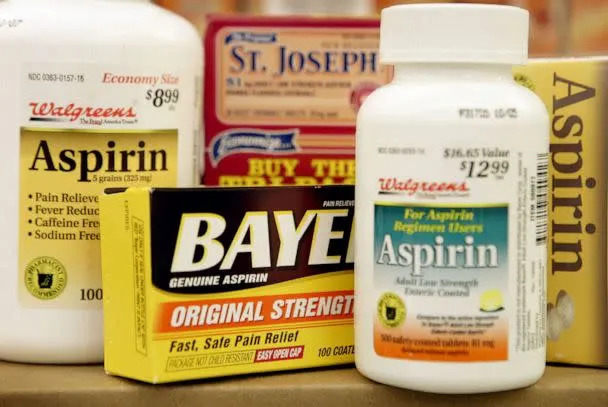Ask your doctor why research wasn't done to determine EXACTLY WHO IS AT RISK, rather than this blanket recommendation. Aren't we trying to get to personalized medicine? My last post on aspirin was flagged for being misleading or something so I don't expect this to last either.
Aspirin no longer recommended to prevent 1st heart attack, stroke for most adults over 60
For years, doctors recommended people in their 50s start taking baby aspirin every day to protect against heart attacks and stroke. But in recent years, with new evidence of the possible harm of daily aspirin, health experts shifted those recommendations.
In major new guidance, an influential physician task force no longer recommends daily aspirin to prevent a first heart attack or stroke among people 60 and older. Meanwhile, the new guidance said people 40 to 59 should only take it if they have a high risk of cardiovascular disease, and in consultation with a doctor. There is little benefit in continuing aspirin beyond the age of 75 years old, experts concluded.
The new guidance comes from the United States Preventive Services Task Force (USPSTF), an influential physician group that helps guide medical best practices.
Related video: Experts say healthy adults shouldn't use daily aspirin to prevent heart attacks

MORE: Maine confirms deadly case of rare tick-borne illness
Heart disease and stroke are the leading causes of death in the United States, accounting for more than one in four deaths. While daily aspirin use has been shown to lower the chance of having a first heart attack or stroke, it can also increase the risk for bleeding in the brain, stomach and intestines. Although the absolute risk of a bleeding event is low, the risk increases with age.
"Based on current evidence, the task force recommends against people 60 and older starting to take aspirin to prevent a first heart attack or stroke," task force vice chair Dr. Michael Barry, professor of Medicine at Massachusetts General Hospital, told ABC News. "Because the chance of internal bleeding increases with age, the potential harms of aspirin use cancel out the benefits in this age group."

"People who are 40 to 59 years old and don’t have a history of cardiovascular disease but are at higher risk may benefit from starting to take aspirin to prevent a first heart attack or stroke," task force member Dr. John Wong, interim Chief Scientific Officer and Professor of Medicine at Tufts Medical Center, told ABC News. "It’s important that they decide together with their healthcare professional if starting aspirin is right for them because daily aspirin does come with possible serious harms."
"It is important for the public to understand that for the vast majority of Americans without pre-existing heart disease, aspirin does not provide a net benefit. The harms are approximately equal to any benefits. The USPSTF is just catching up with this widely accepted scientific viewpoint. For nearly 20 years the FDA has advised against routine use of aspirin for prevention in patients without heart disease," Dr. Steven Nissen, cardiologist at the Cleveland Clinic, told ABC News.
No comments:
Post a Comment